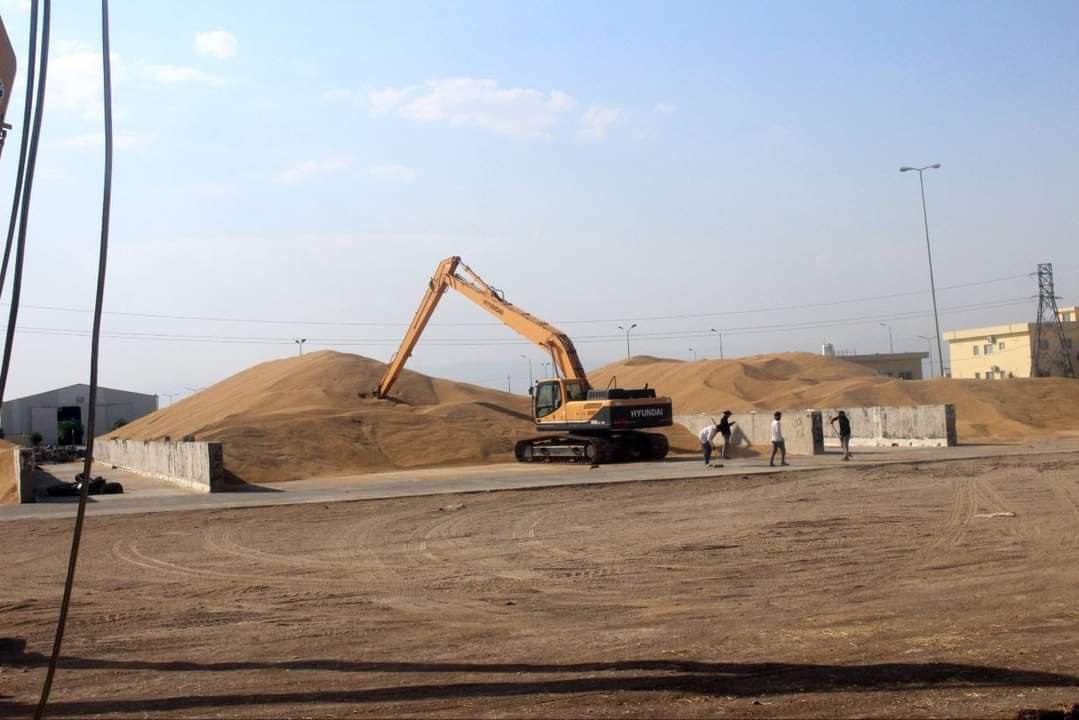The Iraqi government will begin receiving wheat crops from farmers in Alqosh sub-district and Sheikhan district of Nineveh Province, and they will not be forced to sell it to private silos and traders at lower prices.
According to KirkukNow's observations, two sites were allocated to receive more than 140,000 tons in Mosul, after the media, including KirkukNow, published the protests of Alqosh and Sheikhan farmers, who expressed their fear of losing this year's production.
The government had allocated one location to receive the wheat of Alqosh and Shekhan, which is the Rovia Yard, which has a capacity of 50,000 tons, at a time when the production of wheat in the two regions of Nineveh Governorate reached 190,000.
Saryan Safar Elias, director of Alqosh Agriculture, told KirkukNow, “52,000 tons were received in Roviya Square (Silo), but another 140,000 could not be received, which forced them to transport their crops to the city of Mosul, but the checkpoints did not allow them to pass, before it was agreed to allocate other yards to receive wheat.”
Elias explained that the agreement includes receiving all the wheat crops of the Alqosh and Sheikhan farmers. “The Solvin yard was allocated for the Sheikhan wheat and the Al-Halabih yard was allocated for the Alqosh crops, with both of them receiving 140 thousand tons of wheat, even though the yard is far for the Alqosh farmers, as it is approximately 60 kilometers away from the district, but this is better than selling their crops in the market at a low price.”
The government receives wheat from farmers at an amount of 850,000 Iraqi dinars IQD per ton, while private silos and trades pay them 650,000 IQD per ton.
Rifaat Simo, Assistant Governor of Nineveh for Administrative Affairs, told (KirkukNow) that the local administration asked the Ministry of Commerce to extend the period for receiving wheat, which was scheduled to end on July 8, and pointed out that the problem of the farmers of the Nineveh Plain, especially Alqosh and Sheikhan, had been addressed.
Nineveh Province is considered to be a rich agricultural area, according to the Central Statistics Agency, 40 percent of the population live in rural areas and is expected to be the first wheat production in Iraq as in previous years.
The Ministry of Commerce buys and stores grains from farmers and distributes it to mills in order to provide state-subsidized food rations such as floor into markets as bread and rice make the main dish of the Iraqi cuisine.
Iraqi farmers depend on the state in the production of grains, a policy criticized by experts as for years’ grains were stored in silos in vain and funds not allocated on time to pay farmers who sometimes are obliged to sell their grains to traders and private silos for lower prices.
The director general of the (State-owned) General Company for Grain Trading said last July the company still has 1,7 million tons of wheat from last year to meet Iraq's needs for the next four months.





